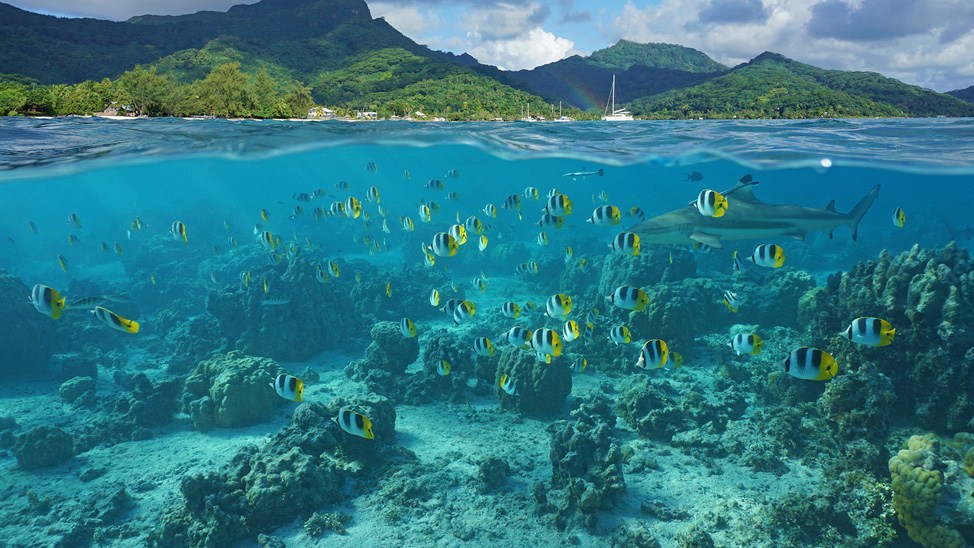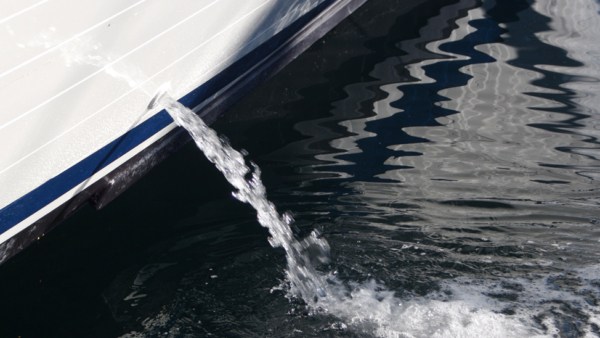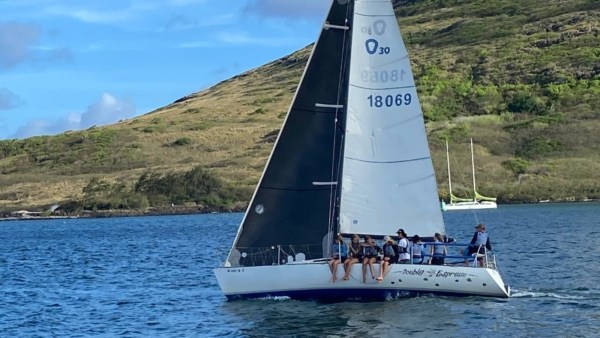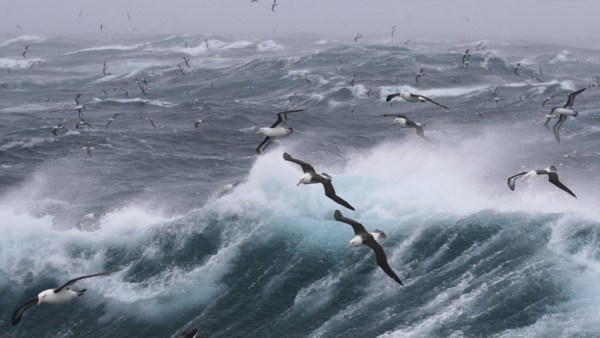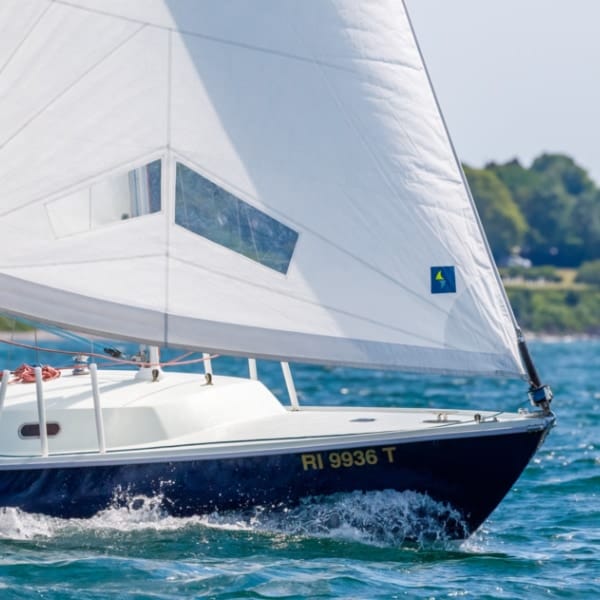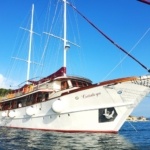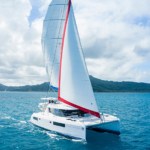Sailors for the Sea Powered by Oceana is the world’s leading ocean conservation organization that engages, educates and activates the sailing and boating community toward restoring ocean health. American Sailing is working with organzations like Sailors for the Sea to to raise awareness about the importance of protecting our waterways.
By Jennifer Brett, Sailors for the Sea
We’ve all been there – you’re out for a relaxed daysail with a friend and are having a snack. Maybe after finishing an apple, one of you casually tosses the core overboard. It’s organic, so that’s ok, right? Or maybe after drinking a can of soda or a glass bottle of juice, you sink it instead of hauling it back to shore.
We at Sailors for the Sea get asked a lot about how to deal with trash, and what’s “ok” to throw overboard. And the simple answer is, in a perfect world… nothing. That banana peel, glass jar, or soda can take a lot longer to biodegrade in the marine environment than you might think.
Marine debris of all kinds is a big problem in our oceans and waters – damaging habitats, hurting sea life – so it’s important to have a plan in place to deal with waste on board. Whether you’re cruising the coast, on a charter in the Caribbean, or racing around the buoys, we hope you can apply some of these tips and suggestions that answer several of the most frequent trash questions we receive.
Don’t bring it aboard: The easiest way to deal with trash is to not bring it aboard in the first place. When provisioning, shop in bulk and properly dispose of the packaging shoreside.
Plan your provisions: Long before leaving the dock, plan out your menu and food stores. If you will be on the boat for a finite amount of time, say for a long-distance race or a boat delivery, drawing up a menu plan considering time (with a buffer for safety, of course) and the number of people aboard will help prevent over purchasing. Preparing meals ahead of time and storing them in reusable containers will reduce trash considerably.
Also think about your destination. This is important as many coastal and island communities do not have a robust waste management infrastructure. Research what is available ahead of time and do all you can to not add to their burden.
Cook from scratch: If you’re cruising or living aboard for a longer period, cook from scratch as much as possible. Storing ingredients to make baked goods will generate much less waste (and be cheaper!) than keeping a supply of brownie and pancake mixes aboard. Learn how to store fresh produce aboard to maximize its life and plan meals around what needs to be eaten, instead of relying on canned and packaged items.
Skip individual packs: Small, commercially packed individual snack items produce an abundant amount of waste that is not recyclable, compostable, or biodegradable. Those little mylar and plastic-film wrappers and bags can easily blow overboard and then be mistaken by sea turtles and other marine life as food. Consider baking your own cookies and granola bars and storing them in reusable containers.
This can apply to drinks too! Whether you like to have juices, sodas, or sports drinks aboard, there are some great alternatives to single-use cans and plastic bottles. Concentrates and powders can be found for many juices and sports drinks, and carbonating units like Soda Streams are common in cruising boat galleys.
Focus on reusables (and reuse everything): On board a boat, it’s said that everything should have at least two uses. Try to keep that in mind when you go shopping. When provisioning for cruising aboard our boat, Lyra, we would think about the immediate use of the item, and how it could be used in the future. After finishing a jug of juice, the container could be refilled with water or another beverage or have a new life as a dinghy bailer. Small plastic containers with lids (coffee, peanut butter, etc.) became homes for all sorts of items aboard.
Store it right: This goes for your provisions *and* your trash. Put thought into where and how you will store your food items so that they don’t get damaged, rot, or go stale before you can eat them.
For the trash, if you’re sailing offshore or cruising in remote locations, you will need to plan for long-term storage. Wash trash items beforehand to prevent odors and pests, compact things as much as possible, and secure the trash bag or receptacle to keep it from going overboard (if storing on deck). For items like plastic bags and wrappers, stuff them into a clean container, such as a juice bottle. This is an easy, compact way to store some of the bulkiest trash until you can dispose of it properly, and can keep small plastic bags from accidentally blowing away.
Don’t toss overboard: We are asked all the time if certain things can be “safely” thrown overboard, and the short answer is no. Just don’t. Cans and glass from decades ago can be seen littering the sea floor, and most cans (including soda cans) have plastic liners.
While the best-case scenario for food items would be to keep scraps aboard and compost when you reach shore, this isn’t always available or feasible. If you are out for only a short time, keep your food scraps (yes, this includes apple cores and banana peels) and dispose of them when you get to shore. If you will be at least three nautical miles offshore (and farther is better), according to the International Convention for the Prevention of Pollution from Ships (MARPOL regulations) you can dispose of food waste overboard ONLY if it has been ground up and can fit through a strainer with “mesh no more than 25 mm.”
While grinding food waste isn’t legally required if you are more than 12 nautical miles offshore (international waters), we recommend cutting items up as small as possible.
You can find more information in our regularly updated Green Boating Guide. Sign up today at Sailors for the Sea to receive your free digital copy!
Sailors for the Sea was co-founded in 2004 by David Rockefeller, Jr. and Dr. David Treadway, two avid sailors who recognized the importance of educating and activating this constituency of ocean enthusiasts. In 2018, Sailors for the Sea joined forces with Oceana, the largest international advocacy organization dedicated solely to ocean conservation. Together, we are creating a global network of active, engaged ocean champions within the sailing and boating community who are taking action to save our oceans.

